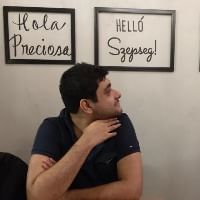Q. It’s not every day that we see a friendship that blooms as well as yours has with Dr Rushindra Sinha (CEO & Co-Founder of Global Esports). The two of you go way back and were even able to make a successful MMORG a decade ago. Tell us a bit about the game that the two of you made so long ago and how the dynamic is like between you and Dr Sinha.
Mohit Israney: Yeah, I guess we have been lucky to see our friendship evolve into the startup we only dreamed of as kids, and it all started with our Ragnarok Online Private Server. RO was one of the first of its kind MMORPGs to be launched in India, and we were hooked.
We played so much that we became the top players on the server and wanted to implement more of our ideas into the game. So we wrote to the developer, but all our emails fell on deaf ears, and that’s when we decided that we need to create our version of the game.
Working with Rushi has always been a fun experience. He’s extremely proficient at handling the backend and inner workings, and I utilized my creativity to help aesthetically improve what we were building. When we decided to create our server, he began learning coding and figuring out the software part of turning the idea into reality while I worked on the design and game aspects and how the entire thing would look and feel.
We spent hours bouncing ideas off of one another about unique features that we could implement. All this free-flowing brainstorming eventually took us from a Ragnarok Online Private Server to the family that we have now built, Global Esports.
Q. How did the existence of Global Esports the organization come to be? Today, Indian esports fans see it as one of the nation’s largest companies, which caters to over two million gamers and even has recognition worldwide. What were the initial years of Global Esports like? Talk to us about your struggles and the parts that both you and Dr Sinha played in its success.
Mohit Israney: The famous question! The existence of Global Esports was a total accident, and here’s how it all happened. Back in 2017, while I was working in the advertising world as a filmmaker, and Rushi had just come back from San Francisco from his startup venture, we wanted to work on something in the gaming/esports space.
We loved playing video games a lot, and our dream was to create something that would let us be more closely involved in the esports ecosystem. So, while I was working a full-time job as a director, and Rushi was managing his hospital full-time, both of us would meet at the end of the day to game and blow some steam off, as was our usual routine.
Each day, we would toy around with various ideas that would help us figure a way to make a full-time career in gaming, but something or the other would not add up, and we would try the next day again.
At that point, The International, a renowned Dota 2 tournament, was around the corner, which we were following religiously since 2011, and we decided to watch that edition together.
But instead of just the two of us, we thought of calling our old Dota gang. The response was more than we expected, and there was no way Rushi was going to host 50 people to watch the game in his house. So, we thought, what if we host the tournament outside, like a watch party, and invite everyone we know from the community?
I suggested that we host the event at a sports bar, just like they host any other cricket or football game. Rushi loved the idea, and we put out a Facebook post announcing the event, and we got such a massive response that our website crashed. It was a funny moment, but we were happy because we had RSVPs from more than 250 people who wanted to watch the event with us.
The idea came to us on a Tuesday, and we successfully hosted the watch party on a Saturday. And that was the first-ever event we did under the banner of Global Esports.
The event got over, and Rushi and I were back to work, but without even knowing it, we had entered the esports industry. Everyone who heard about the event started to get in touch with us, asking when the next event would happen. From brands, sponsors, tournament organizers to other esports organizations, we had no idea what we were doing next, but there was so much noise that it got us thinking.
This was an exhilarating time for us but also challenging because we saw a void in the industry, which we had no idea how to fill. Committing to an idea we had given birth to before it became Global Esports was the struggle we both had to go through. Both of us worked from 9 am to 7 pm in our respective fields, and night-time, post-dinner, was when we worked on our startup.
The biggest battle we faced was going to work the next day. The only silver lining was knowing that we will be coming back to nurture our startup at night. This was the feeling that brought a smile to my face each time I traveled across the city on a local train during rush hours.
Quitting our jobs was not easy, and there were many times we could have easily given up, but we believed in our idea so much that we were ready to do anything to make it come to life. Having each other’s backs during these times was a thing that felt like a game, and it was this idea that we had been discussing since we were kids that led to the inception of Global Esports.
